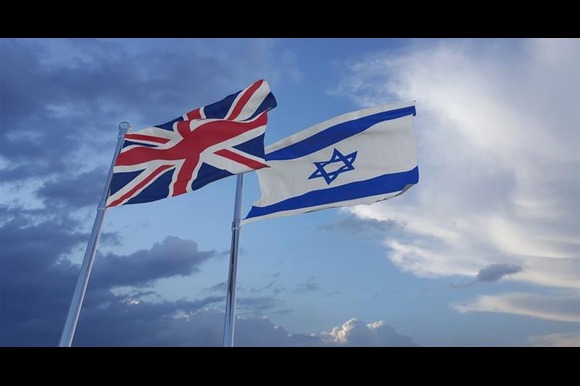The United Kingdom has suspended trade negotiations with Israel, summoned the Israeli ambassador, and imposed fresh sanctions on West Bank settlers, as Foreign Secretary David Lammy condemned the intensifying military action in Gaza, calling it “morally unjustifiable”.
The UK’s decision follows growing international alarm over the humanitarian crisis in Gaza, where severe shortages of food, fuel, and medicine have triggered warnings of imminent famine. The situation deteriorated further after Israel launched a new military operation over the weekend.
Tensions spilled over in Parliament, with heated exchanges between Lammy and Conservative shadow foreign secretary Dame Priti Patel, who warned the measures would be welcomed by Hamas. Patel criticized the government for not going far enough and suggested that its actions risked undermining efforts to address the broader crisis.
Responding to the UK’s move, Israel’s foreign ministry spokesperson said that international pressure would not deter Israel from defending itself. The spokesman insisted that Israel remains focused on its national security, accusing the UK of allowing “anti-Israel obsession” and domestic politics to dictate its decisions, even at the potential cost to its own economy.
Global experts and humanitarian agencies have continued to sound the alarm, with the United Nations warning of famine conditions due to the 11-week Israeli blockade on aid. Israel stated it had permitted five aid trucks into Gaza, but the UN’s humanitarian chief called this effort “a drop in the ocean” compared to what is urgently needed. Subsequently, Israel reportedly granted permission for around 100 aid trucks to enter Gaza.
Prime Minister Sir Keir Starmer described the situation as “intolerable” and stressed that humanitarian aid must be allowed in “at pace”. In the House of Commons, outrage erupted as MPs reacted to recent statements by an Israeli minister who reportedly referred to the military actions as “cleansing Gaza” and relocating Palestinians to “third countries”.
Lammy condemned those remarks in stark terms, calling them “extremist, dangerous, repellent, and monstrous.” He emphasized that while the UK supports Israel’s right to self-defense following the Hamas-led attack on 7 October 2023, the current Israeli response was “utterly counterproductive” and risked further isolating the country internationally.
As part of the UK’s response, Lammy confirmed the suspension of negotiations on a UK-Israel free trade agreement and said the Israeli ambassador had been summoned to meet Middle East Minister Hamish Falconer to convey the UK’s deep concerns over the Israeli government’s actions.
Announcing sanctions against three individuals and four companies involved in settler violence, Lammy cited “heinous abuses of human rights” as justification. The sanctions include asset freezes and travel bans.
Nevertheless, Dame Priti Patel criticized Lammy’s approach, claiming that “strong words will do little” to address the suffering and asserting that Hamas had welcomed the UK’s actions—something she argued should “cause concern”.
Several Labour backbenchers pressed for even stronger measures. Abtisam Mohamed, MP for Sheffield Central, accused Israeli Prime Minister Benjamin Netanyahu of effectively admitting to an intent to carry out ethnic cleansing. Dr Rosena Allin-Khan, MP for Tooting, condemned the “weaponisation of food” and urged the government to impose an arms embargo and additional sanctions on Israeli officials.
Lammy reiterated that the UK had already suspended some arms sales to avoid complicity in violations of international humanitarian law and pledged further action if necessary. He gave an “absolute commitment” that the government would continue to act “in the coming days and weeks” if conditions did not improve.
In response, Israeli foreign ministry spokesman Oren Marmorstein rejected the UK’s sanctions as “unjustified” and reaffirmed Israel’s commitment to its military campaign. He also claimed the UK had not advanced trade talks for some time, suggesting that the announcement was politically motivated.
“External pressure will not divert Israel from its path in defending its existence and security against enemies who seek its destruction,” Marmorstein said.






